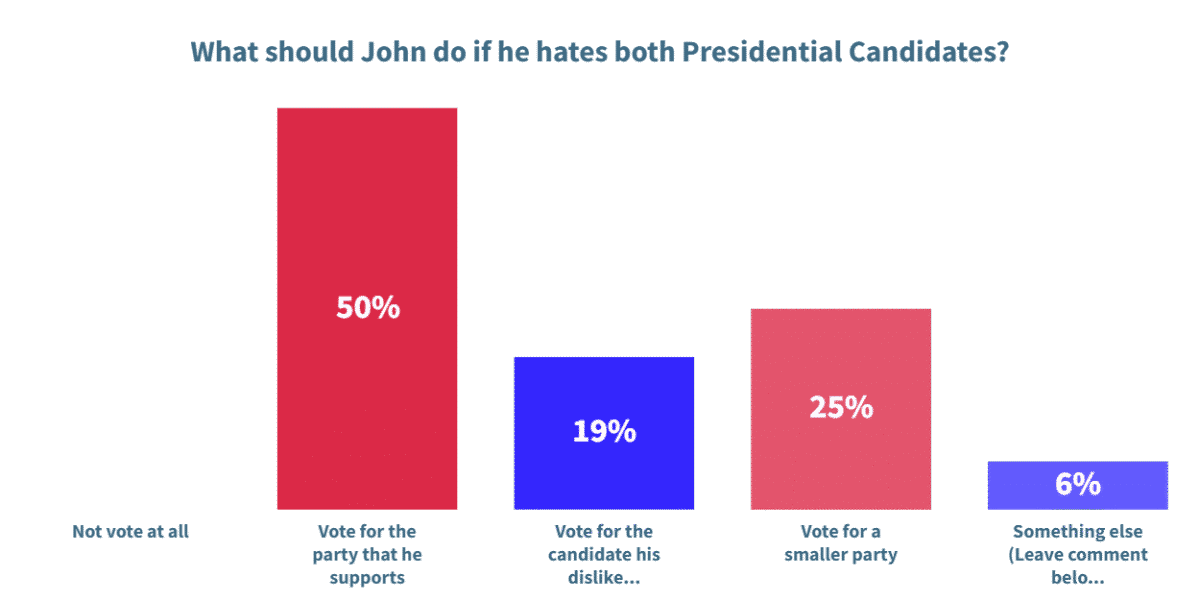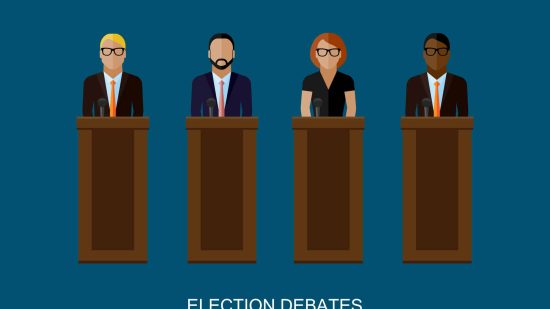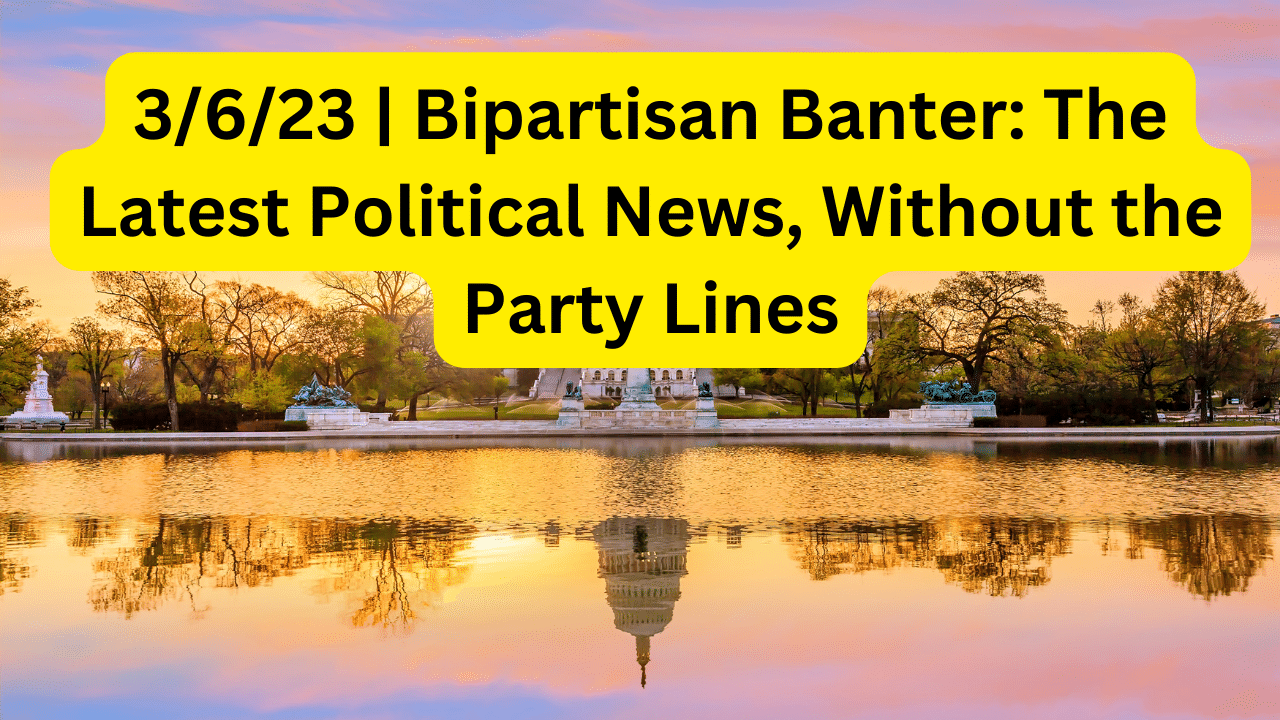Table of Contents
ToggleSources
- https://www.pewresearch.org/politics/2020/11/03/in-a-pandemic-election-year-turnout-soars-among-all-demographic-groups/
Pew Research is a reputable source for election data and analysis. This article discusses the high voter turnout in the 2020 election, which aligns with the claim in the blog post about the highest turnout in 100 years. - https://www.brookings.edu/articles/why-do-people-vote-against-their-preferences/
Brookings Institution is a respected think tank. This article explores why people might vote against their preferences, which is relevant to the dilemma John faces in choosing between two disliked candidates. - https://www.fec.gov/introduction-campaign-finance/understanding-ways-support-federal-candidates/
The Federal Election Commission (FEC) is an authoritative source on election laws and voting options. This page explains different ways to support federal candidates, including voting for third-party candidates, which is one of the options John considers. - https://www.usa.gov/voting
USA.gov is a reliable government resource. This page provides general information about voting in the U.S., including the importance of voting and alternatives like third-party voting, which are discussed in the blog post. - https://www.history.com/topics/womens-history/the-fight-for-womens-suffrage
History.com is a well-regarded source for historical context. This article details the fight for voting rights, which supports the blog post's mention of previous generations fighting for the right to vote.
Key Points
- The blog post presents a scenario where a voter, John, dislikes both major candidates in an election.
- John considers four options: not voting, voting based on party, choosing the lesser evil, or voting for a minor party.
- Not voting is an option, but John values democracy and the right to vote.
- Voting based on party is another option, but John feels this indirectly supports candidates he dislikes.
- Choosing the lesser evil is considered, but the post questions if this is a valid decision-making factor.
- Voting for a minor party is an option, though it may have little impact on the election outcome.
- The post invites readers to share their opinions on what John should do or suggest alternative actions.
- A poll is referenced, indicating reader engagement on the topic.
Summary
This blog post explores the dilemma of a voter, John, who dislikes both major candidates in an election and weighs his options: abstaining, voting based on party, choosing the lesser evil, or supporting a minor party. The post invites readers to share their opinions on what John should do, emphasizing the importance of democratic participation despite difficult choices. It also highlights the site's openness to diverse political opinions and encourages reader contributions.
Please note that any views expressed on this page do NOT represent constitutionus.com or any of its affiliate websites. They are solely the views of the writer.
We accept opinion pieces on (almost) any political view to promote discussion and intrigue. If you would like to contribute to a future newsletter issue, please contact us at:
https://constitutionus.com/contact-us/
What if you hate both candidates?
John is 27 years old and lives in Chicago. Seven years ago, he voted in his first General Election. He voted for the Democrats because he thought that Hillary Clinton would be a good President and leader for the country.

Get Smarter on US News, History, and the Constitution
Join the thousands of fellow patriots who rely on our 5-minute newsletter to stay informed on the key events and trends that shaped our nation's past and continue to shape its present.
Four years later, he had the opportunity to vote. However, this time it was much harder. He didn’t want to vote for Trump, AND he didn’t want to vote for Biden. He thought that neither of them would make a good president or represent what he believed in.
What was John to do?
1. John could have just not voted. 38% of the country did exactly that. As it happens, it was actually the highest turnout for a general election in the last 100 years! John didn’t want to NOT vote, as he strongly believed in democracy and realized how much previous generations had fought for the right to vote.
2. John could have ignored who the potential President and/or Vice Presidents were and voted for the party that he felt represented his beliefs. His problem with voting for a party rather than a president was that he felt strongly against the candidates and by voting for a party, he would in effect, be voting for a candidate.
3. John could vote for the candidate there he disliked less. I’m not sure that choosing between 2 evils should be deciding factor on who to vote for.
4. John could vote for one of the smaller parties who wouldn’t have a chance in the election, and wouldn’t really have an effect. Was this actually better than not voting at all?
In your opinion, what should John have done? We’re interested in hearing from you about which of these options he should have chosen. Or perhaps you have another suggestion that you can tell us about in the comments.
Poll Results:

Frequently Asked Questions
What should I do if I dislike both major candidates in an election?
Is not voting a valid option if I don\'t like any candidates?
Does voting for a smaller party make a difference if they can\'t win?
How can I contribute my opinion to constitutionus.com?
What was the voter turnout in the last general election mentioned in the post?
How useful was this post?
Click on a star to rate it!
Average rating / 5. Vote count:
No votes so far! Be the first to rate this post.
We are sorry that this post was not useful for you!
Let us improve this post!
Tell us how we can improve this post?








2 Responses
John should have voted in the primary for someone other than Biden (or Trump if he was a Republican). Too many people sit out during primary elections. Consequently, selection of a party’s candidate is left to the die hard party loyalists that always vote for the candidate that the party leaders choose. Unfortunately, the party leaders push the candidate that they believe can win in the general election and they don’t care if that person is even qualified. They only care that the party will win.
Vote for Ross Perot (again).